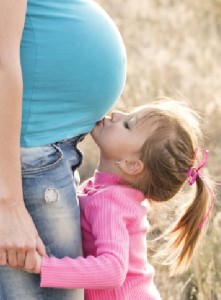The Kids Research Institute Australia researchers leading the Western Australian site of a global respiratory syncytial virus (RSV) study can now fine-tune development of a world-first vaccine for pregnant mothers.
An international collaboration involving 11 countries around the globe, the four-year Prepare™ Maternal RSV Study, sponsored by Novavax, aimed to investigate whether providing a vaccine to expectant mothers could protect their newborns from RSV when they are most vulnerable.
Professor Peter Richmond, Head of the Vaccine Trials Group at the Wesfarmers Centre of Vaccines and Infectious Diseases, based at The Kids Research Institute Australia, and Perth Children’s Hospital paediatrician, said RSV was responsible for approximately 200,000 deaths in babies around the world every year, due to life-threatening complications such as severe bronchiolitis and pneumonia.
“Similar to influenza and pertussis (whooping cough), we believe the key to protecting young babies from RSV is by giving a vaccine to mothers in pregnancy,” Professor Richmond said.
More than 4,600 women participated in the study to see if a potential RSV vaccine can provide the necessary antibodies to protect babies during their first few months of life, with results published today in the New England Journal of Medicine.
“The study successfully demonstrated that giving an RSV vaccine in pregnancy is safe for both the mother and baby and showed potentially protective antibodies were transferred to the newborn, which is a very exciting step in the right direction,” Professor Richmond said.

“The vaccine reduced hospitalisations caused by RSV, and children from low-middle income countries at highest risk of the disease appeared to have a higher level of protection, but effectiveness varied between settings and this requires further investigation.
“We also learnt that immunity does wane over time, but the overall reduction in pneumonia in babies may persist for up to six or even 12 months, so the timing of when the vaccination is given in pregnancy and in relation to the RSV season may be important.
“This knowledge is extremely helpful in guiding our research strategies going forward, allowing us to determine the optimal formulations and timing of RSV vaccines in pregnancy.
“If we can achieve this, we can significantly reduce the number of newborns developing serious complications and being hospitalised due to RSV disease.”
The Institute’s Vaccine Trials Group will continue to be involved in new RSV vaccine studies that will build on the valuable insights gained from the newly published results.
“I’m confident that we are now one step closer to having an RSV vaccine that will have a global impact for many generations to come,” Professor Richmond said.
Gregory M. Glenn, M.D., President of Research and Development of Novavax, said the Prepare Phase 3 clinical trial was highly instructive, demonstrating a maternal immunisation strategy was viable, and that modulating RSV disease in this way could have beneficial long-term impacts.
For more information about RSV research by the Wesfarmers Centre of Vaccines and Infectious Diseases or to register your interest for upcoming studies, please contact vtg@telethonkids.org.au
